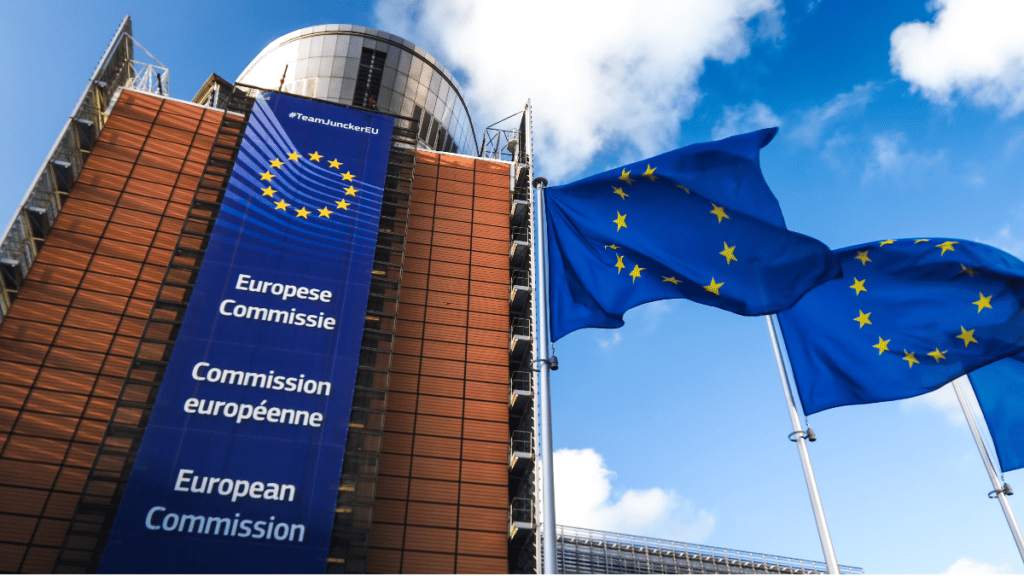After Years of Leading the Charge Against Big Tech Dominance, is the EU Falling Behind?
Max von Thun / Mar 1, 2023Max von Thun is the Director of Europe & Transatlantic Partnerships at the Open Markets Institute, based in Brussels.

Since the launch of its first antitrust investigation into Google in 2010, the European Union has positioned itself as a global leader when it comes to reining in Big Tech. Several EU investigations into the anti-competitive practices of Big Tech monopolies happened years before regulatory authorities in the US or anywhere else in the world took action. As a result of these investigations, tech companies, especially Google, were fined billions of euros. Additionally, major takeovers such as Facebook's purchase of WhatsApp and Google's acquisition of Fitbit have also faced scrutiny from EU regulators, all while U.S. legislators and regulators largely sat on their hands as Big Tech accumulated ever more market power.
The European Union’s leadership in this area was reinforced by last year’s passage of the Digital Markets Act (DMA), which will require dominant tech firms – known as ‘gatekeepers’ – to comply with a whole host of regulatory obligations designed to stamp out their most egregious practices. For example, gatekeepers will no longer be able to self-preference their own services or leverage data collected from their customers, and they will be required to open their platforms to third-party payment services and application stores. As one of the world’s first attempts to legislate in order to protect competition in digital markets, the introduction of the DMA is undoubtedly a significant moment in the global pushback against digital dominance.
Nonetheless, events taking place elsewhere suggest the EU is at risk of losing its crown. In 2021, the UK became the first country to block a takeover by a Big Tech firm when it ordered Meta to unwind its acquisition of Giphy. And of course, just last month the U.S. Department of Justice (DOJ) filed a lawsuit seeking to dismantle Google’s dominant position across the adtech supply chain, the nation’s biggest antitrust case in 40 years. The Federal Trade Commission (FTC) has also sought to block takeovers by Meta and Microsoft as part of a wider reinvigoration of antitrust enforcement under President Biden.
Perhaps the biggest reason the EU is losing its edge is its unwillingness to consider structural solutions to Big Tech’s dominance. Unlike the behavioral remedies it typically uses to discourage or proscribe companies from engaging in anti-competitive practices – such as bundling products or limiting access to data – structural measures sought by the DOJ and FTC target the very scale and scope that enable such practices in the first place – by forcing companies to divest or legally separate parts of their business. As well as failing to address the root problem, behavioral remedies are notoriously difficult to monitor and enforce, as recently acknowledged by leading competition authorities including the UK’s Competition and Markets Authority, Germany’s Bundeskartellamt, and Australia’s Competition & Consumer Commission.
Yet time and time again, the Commission has opted for behavioral over structural remedies, with underwhelming results. For example, its many exhaustive investigations into Google’s abusive practices and over €8 billion in fines have done little to dent the behemoth’s manipulative practices in the search, mobile and online advertising markets. In late December, the EU concluded multiple multiyear investigations into Amazon’s marketplace by getting the company to sign up to a set of weak promises that were heavily criticized by civil society stakeholders.
The picture isn’t much better when it comes to mergers, where despite countless investigations the European Commission has failed to block a single acquisition by a Big Tech platform, again preferring to rely on problematic commitments. Having said that, the Commission’s decision late last year (subject to appeal) to unwind biotech firm Illumina’s takeover of cancer screening startup Grail suggests that even in Brussels, the winds of change may finally be blowing.
When it comes to the DMA, while it is an important upgrade to the EU’s regulatory toolkit, it will not negate the need for structural interventions. As a set of dos and don’ts, the DMA itself is ultimately a behavioral rather than structural measure. And although it will hopefully succeed in stopping many of the harmful practices Big Tech firms impose on their users and customers, it will do little to reduce the scale that makes them possible. There are also concerns around the Commission’s ability to effectively enforce the DMA, given the gulf in financial resources and expertise between the regulator and the companies it will be regulating. Far from running counter to the DMA, structural interventions – by breaking up the gatekeepers into smaller units – would greatly facilitate the task of enforcing the new rules.
This isn’t to say that breaking up Big Tech companies would be straightforward. The Commission would need to lay out its case rigorously and carefully, all the more so when it comes to powerful firms headquartered outside of Europe. But there are already clear outlines for where structural separation would make sense – think Meta’s ownership of WhatsApp and Instagram, or Amazon’s conflicted role in operating a marketplace on which it also sells its own retail products.
After years of not seeing eye-to-eye with the US over concentration in digital markets, the EU now has a White House that would almost certainly welcome its support in breaking up Big Tech, a unique set of circumstances that may not last. The Commission should use this chance to be bold, or it will regret the consequences.
Authors
